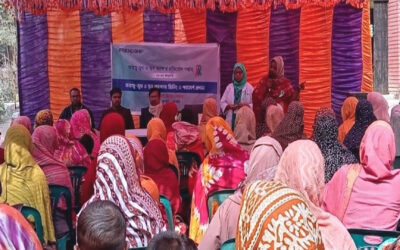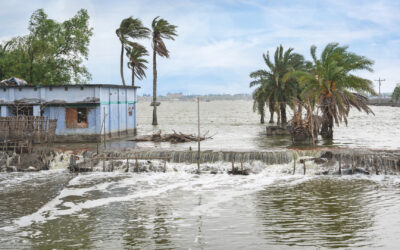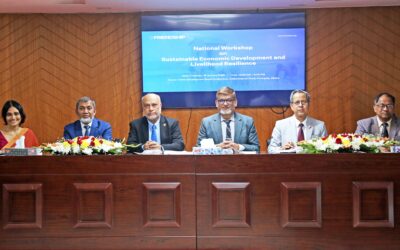Friendship hosts three sessions at the 16th International Conference on Community-Based Adaptation on Climate Change (CBA16)
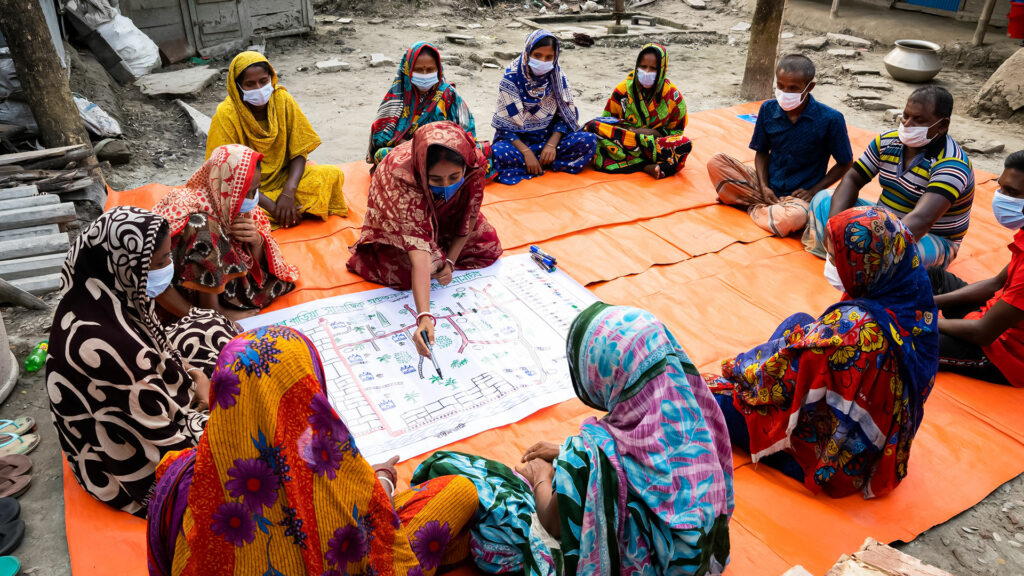
by Tahmeed Chaudhury
October 16, 2022
At CBA16, Friendship, which previously won a film competition award at CBA15, hosted sessions on the opportunities of using local knowledge and practices to enhance climate action; ensuring justice for the climate change-affected populations; and the importance of empowering local governments in reacting to climate emergencies. The annual CBA conferences are carried out by the International Institute for Environment and Development (IIED) to discuss the challenges and opportunities arising from climate change and share knowledge and experience amongst researchers, practitioners, grassroots representatives, donors and policymakers.
This year’s conference was held from October 3-4, with a focus on the principles for locally-led adaptation (LLA). CBA16 gave importance to the knowledge and experience of communities at the forefront of the climate crisis, emphasising on the need to learn from their adaptation practices. The participants explored avenues to put LLA principles into practice.
The first session organised by Friendship was themed around enhancing locally-led adaptation and nature-based solutions by utilising local knowledge and cultural heritage, facilitating dialogue around the importance of indigenous knowledge, culture and the experience of locals who are directly affected by adverse climatic events; and how it is essential to incorporate modern practices and technical assistance to address the changing climatic pattern. Keynote speakers shared scenarios and locally-led adaptation practices in their countries.
As for Friendship’s contribution to the discussion; the mangrove afforestation project, plinth construction and other major locally-led adaptation practices were showcased. The session also featured poetry for the first time in a CBA conference! Shehzar Doja, Maria Sledmere and Catriona Sutherland recited poems to underscore the impact of climate change on the planet and people.
During her opening speech, Friendship founder Runa Khan remarked, “the local knowledge is essential in climate adaptation, but the interaction of culture, literature, art, is also important because it touches our hearts and souls, and hence has the power to break barriers and make mentalities evolve. Poetry can help us imagine history, the future and the present as otherwise.”
The whole session can be watched here.
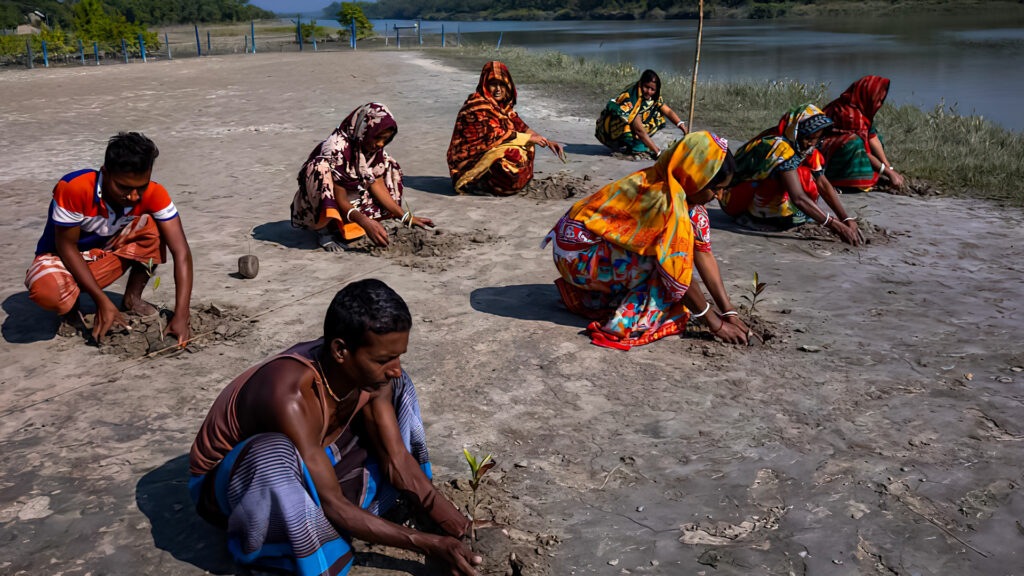
In another session organised by Friendship based on taking a climate justice approach to locally-led adaptation, discussions revolved around the amplification of social injustices (i.e. gender, geographical, indigenous, etc.) due to the climate crisis. Participants also conversed about how women, children, the disabled and the elderly are the worst-affected by climate change and how internal displacement leads to further social injustice. The session featured interactive breakout discussions where speakers shared their knowledge and experience on the practices undertaken by their countries and discussed ideas to innovate new solutions.
“Bangladesh is facing the brunt of the catastrophe of climate change. Under these circumstances, we need to be innovative. Social injustice is a cruel outcome of climate-based displacement. Through locally-led adaptation practices, we have enabled access to government and justice practices,” said barrister Ayesha Taasin Khan, head of Inclusive Citizenship at Friendship.
“Gender, indigenous, geographical and historical injustice against the climate crisis is a statement, but through this kind of conference, with many people from around the world acting and bringing solutions, we can claim that there are new ways to do better, together, in more solidarity” added HRH Princess Esmerlda of Belgium, also chair of Friendship Belgium.
This whole session can be watched here.
The final session hosted by Friendship focused on the role of local governments in putting locally-led adaptation into practice. Kazi Amdadul Hoque, head of Friendship’s Climate Action presented Friendship’s practices and innovations, including its cooperation with the local governments to initiate quick response and rehabilitation to adverse climatic events. He also outlined the importance of decentralising national resources to empower local governments to respond independently of the central government, leading to faster, and more effective response to disasters. This session also featured interactive breakout discussions, with participants holding dialogues over inclusive decision making, financial adaptations, effective monitoring, evaluation and learning (MEL) and effective decision making.
And finally, this whole session can be watched here.
CBA16, held with the aim of ensuring that the perspectives of people on the frontline are voiced at the highest levels, brought the global adaptation community together to promote effective, locally-led climate action. The knowledge and experience shared, and the key takeaways from the event can be carried forward to the 27th edition of the Conference of the Parties (COP27). Due to be held next month in Egypt, all eyes and ears will be on global leaders who are expected to deliver on the landmark Paris agreement, for the sake of the planet and its people.


